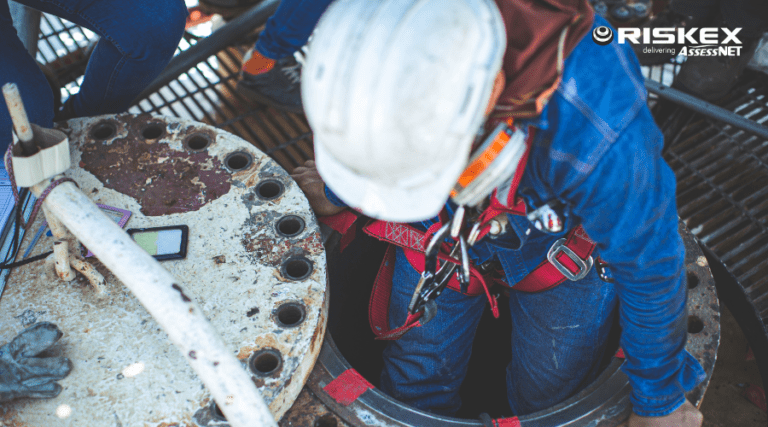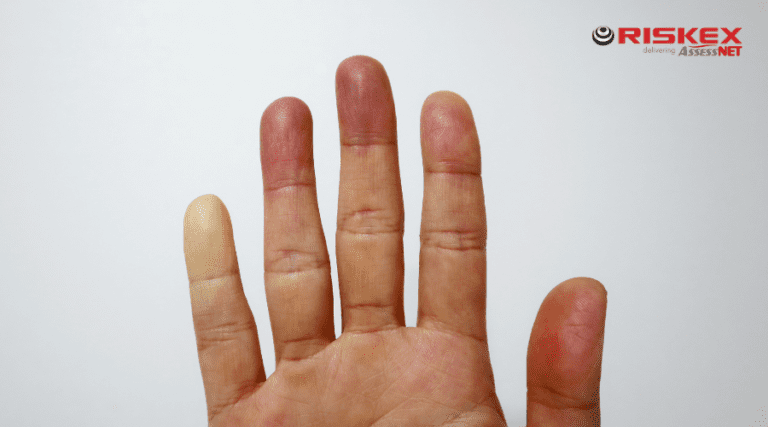Firm fined more than £500,000 after shift worker fell to his death
A North Yorkshire company has been fined more than half a million pounds after a night shift worker fell to his death.
Mark Pinder, 51, was working for East Riding Sacks Ltd, a manufacturer of paper sacks, at its site in Stamford Bridge, near York, when the incident happened on 11 February 2023.
Mr Pinder, from York, had been operating one of the production lines when a blockage occurred on the upper deck of the machinery. After identifying the cause, he attempted to remove the blockage. He had been standing on the stationery metal rollers when his colleagues witnessed part of the machine being activated. Mr Pinder was struck by the machine which caused him to lose his footing.
He fell approximately three metres from the unguarded edge of the metal rollers to the factory floor below.
Although paramedics were called to the factory, he died at the scene as a result of his injuries.
An investigation by the Health and Safety Executive (HSE) found that East Riding Sacks Ltd failed to provide a robust safe system of work. This related to the isolation of the sack making line and the removal of blockages. They also failed to identify the risk from a fall from height and implement appropriate measures.
Falls from height remains one of the leading causes of workplace injury and death and HSE has detailed guidance on working safely at height.
The HSE investigation also found that workers routinely cleared blockages themselves, relying solely on the interlock guarding to stop the machine, even though they had not been adequately trained in isolation or blockage removal procedures. In addition, workers were using the conveyor belt as a shortcut between gantries, often climbing over the handrails onto the equipment rather than down the stairs and walking around. Management were unaware of this practice.
HSE guidance states employers must take effective measures to prevent access to dangerous parts of machinery and to avoid work at height where possible. Where routine access is required to components, suitable measures should be taken to stop the movement of dangerous parts before a person can reach a danger zone. Further guidance can be found here: https://www.hse.gov.uk/work-equipment-machinery/puwer-overview.htm
Construction boss avoids jail after worker died during house extension
The director of a Leicester-based construction company has been given a suspended prison sentence after a man fell from height while working on a house extension and died in hospital several weeks later.
Stephen Pywell was working under the control of Affordable Lifestyle Design Limited at a site in Thurmaston on 18 March 2019. It was during the roof construction phase when the 59-year-old fell while walking on the beams. He had accessed the beams via a ladder, however there was no edge protection in place to prevent falls. He fell from a height of just under eight feet. He was taken to hospital where he underwent surgery, but died several weeks later on 13 May as a result of his injuries.
An investigation by the Health and Safety Executive (HSE) found that James Pitsillides, the director of Affordable Lifestyle Design Limited, had failed to manage the roof work. This included ensuring that roofing subcontractors, including Mr Pywell, were not exposed to health and safety risks.
British Airways fined more than £3million following worker injuries at Heathrow
British Airways has been fined more than £3million after two employees fell from height and sustained serious injuries.
The airline was prosecuted by the Health and Safety Executive (HSE) following two separate incidents at Terminal 5 at Heathrow Airport.
On 25 August 2022, a 54 -year-old employee had been unloading baggage containers from an aircraft when he slipped off a televator and landed 1.5 metres onto the ground below. He suffered serious back and head injuries, including a fractured vertebrae, as a result.
The HSE investigation found there were gaps between the televator’s guardrails and the aircraft fuselage, the size of which depended on the type of aircraft, creating the fall from height hazard. The gaps increased in size after the front of the televators’ platforms at Terminal 5 were extended – but additional measures to prevent falls from height had not been implemented.
At the time of the incident, British Airways had started a programme to retrofit extendable guardrails to televators in response to previous HSE visits. This was completed following the incident.
In the second incident a British Airways worker sustained head injuries, including a fractured jaw and bleeding on the brain, on 8 March 2023, while unloading baggage containers from an aircraft following its arrival from Seattle. The 43-year-old fell from an elevator and landed three metres onto the ground below.
Both employees were taken to hospital for treatment and had to take several months off work.
The HSE investigation into this incident identified a risk of employees falling from height from the front of the elevator platforms when they were being used during loading and unloading of some aircraft types. Flaps on either side of the platform would be left folded down leaving a gap between the platform and aircraft fuselage.
It also found that the elevator’s operator platform had not been fully extended towards the aircraft, creating a gap which employees could fall through.
Falls from height remain one of the leading causes of workplace injury and death. HSE has detailed guidance on working safely at height while the Civil Aviation Authority has guidance with input from HSE on ground handling activities, including aircraft loading, on its website.
“No-one is in charge of health and safety” – stone company fined after workshop floor covered in hazardous dust
A company that manufactures popular stone kitchen worktops has been fined £60,000 after it repeatedly failed to protect workers from exposure to hazardous dust.
Inspectors from the Health and Safety Executive (HSE) visited Inova Stone Ltd nine times over a six year period, and found little or no improvement across several areas of concern.
HSE inspectors were left stunned after visiting the company’s premises in Slough in May 2021 when employees told them that ‘no-one is in charge of health and safety’. That visit had come about after concerns had been raised about unsafe working practices. Inspectors soon saw the complacency for themselves, after identifying several breaches of health and safety law, including a failure to control exposure to respirable crystalline silica (RCS).
The workshop floor was caked in dust, suggesting an absence of effective controls.
Stone worktops are becoming increasingly popular in home kitchens. Processing stone, including engineered stone, by cutting, chiselling and polishing, can create dust that contains airborne particle that carry RCS.
RCS dust is invisibly fine and can reach deep inside the lung. It can cause permanent lung damage before symptoms develop. Stone workers are at risk of exposure to airborne particles of stone dust containing RCS, with the risk higher when exposure is prolonged and uncontrolled. Over time, breathing in these silica particles can cause irreversible, life-changing and often fatal respiratory conditions such as silicosis, chronic obstructive pulmonary disease and lung cancer.
- HSE recently updated its guidance for those working on stone worktops – including a helpful guide of do’s and don’ts here: HSE Guidance for those installing stone worktops (PDF) .
As well as failing to protect workers from the potentially deadly dust, HSE inspectors also found Inova Stone Ltd routinely allowed them to use unguarded machinery. In addition, the company also had heavy stone slabs not being stored safely, putting workers at risk of serious injury.
As a result of the inspection, the company was served with four improvement notices, with the resulting HSE investigation revealing similar action had also been taken four years earlier, in 2017.






